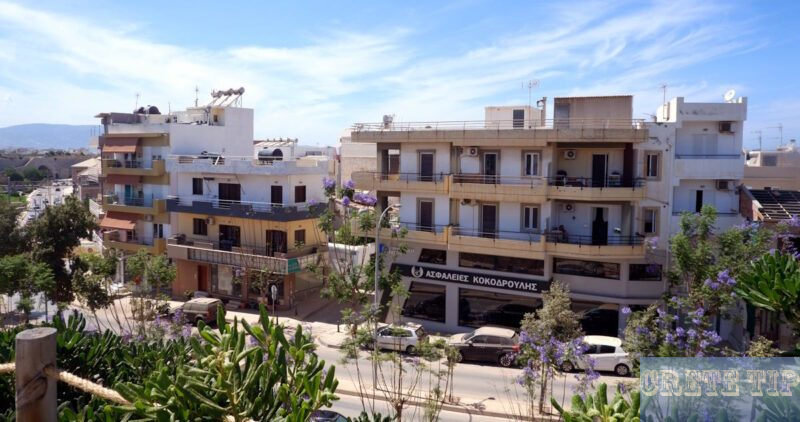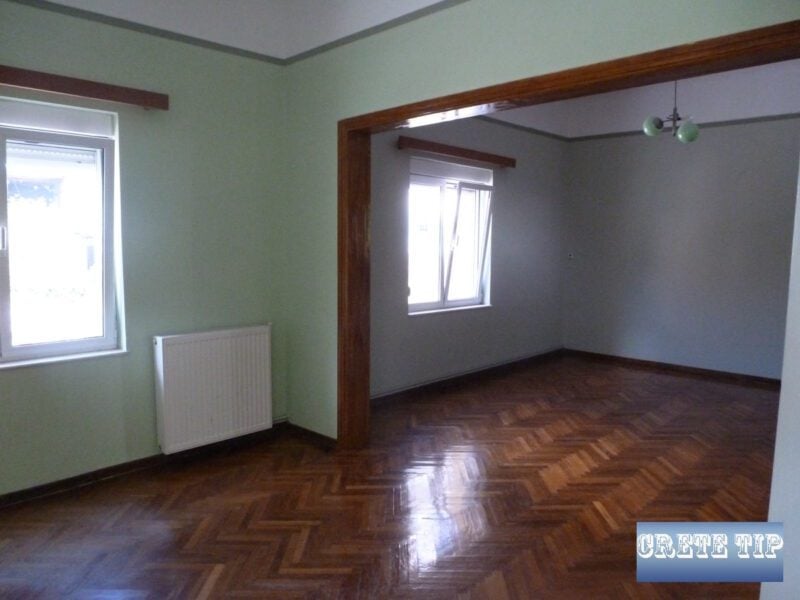The property crisis in Greece and Crete: why the housing supply has collapsed and the new government measures to combat it – rent subsidies and bonuses.

Greece’s housing market faces a growing challenge. The number of homes available for sale or rent keeps dropping fast.
Even as prices and rents climb, residential property supply keeps shrinking. Several interconnected factors limit what’s out there, putting real pressure on both buyers and tenants.
A lot of homes are still tied up in financial messes, so they’re not hitting the market anytime soon. Many properties that used to be long-term rentals now serve as short-term tourist lets or sit with foreign investors, which leaves locals with fewer choices.
New housing construction has slowed to a crawl. Regulatory changes and high costs make it tough for developers to get projects off the ground.
Energy bills and building material prices keep rising, and that’s not helping anyone start new developments. The housing supply just keeps tightening.
Key Takeaways
- The shortage of available homes is pushing prices and rents higher.
- Many properties remain off the market due to financial and legal delays.
- New construction has dropped sharply, worsening the housing supply problem.
Real estate market imbalance in Greece drives prices

The Greek property market feels out of balance. Demand stays strong—especially from foreign investors—but there just aren’t enough homes for sale.
This shortage sends property prices higher. It’s not that there are more buyers, just fewer homes to go around.
Apartment prices jumped noticeably in 2025. Both new and old properties saw big increases, though the pace varied by city.
Athens had a steady but smaller price bump. Thessaloniki and other regions, on the other hand, saw sharper jumps.
Rental prices keep rising too, following the same pattern. Demand from locals and international buyers—especially in places like Attica—makes things even tighter.
Rising Risks and Household Financial Pressure
The Bank of Greece says banks aren’t facing much immediate risk right now, mostly because new mortgage lending is still low.
But let’s be honest, house prices keep climbing, and there just aren’t enough homes out there. That combo is creating some pretty serious systemic risks that could spill over into the whole market.
Property managers and investors seem to be sitting on a lot of unsold houses. If they keep holding back, the market could get even more out of whack.
Greek households are really feeling it—they’re facing the highest housing costs in Europe.
- 35.5% of income goes just to housing
- Almost 30% of people pay over 40% of what they earn on a place to live, which is more than anywhere else in the EU
With supply this tight and prices still rising, it’s no wonder housing has become the biggest financial burden for so many families.
Interest rates keep bouncing around, and housing policies just haven’t really caught up to what’s happening on the ground.
The Bank of Greece has warned that if nothing changes, both market stability and household finances could take a real hit.
Rising Rent Costs in Crete: Which Region Leads the Increase?

Rents in Crete keep climbing, and honestly, tenants are feeling the squeeze. The average increase for 2025 is about 4.3% compared to 2024.
Every prefecture on the island sees this trend, though the numbers vary by area. Tourism’s a big driver here—popular spots get hit harder as more homes go to short-term rentals like Airbnb instead of long-term leases.
This leaves fewer places for locals and pushes prices even higher. It’s a classic supply and demand mess.
Rent Prices by Region in Crete (2025 Average per Square Metre)
Prefecture | Average Rent (€ / sqm) |
|---|---|
Heraklion | 8.0 |
9.3 | |
10.9 |
Rethymno tops the list, with rents almost at 11 euros per square metre. Chania and Heraklion trail behind, but not by much.
Factors Behind the Price Increase
- High Tourist Demand: More visitors mean more competition for rentals.
- Short-Term Rentals: Airbnb and similar platforms limit what’s left for long-term tenants.
- Limited Housing Supply: Few new homes get built, so existing ones just get pricier.
Owners’ associations say we need new building projects to help. After years of little construction, getting housing development moving again feels essential.
They also want to see incentives to reopen empty homes, but admit owners need a reason to bother.
Suggested Solutions to Ease Rent Pressures
- Lower Tax Rates: Cut taxes for owners to encourage investment.
- Funding Options: Offer loans or grants to jumpstart homebuilding.
- Unlocking Idle Properties: Get unused homes back on the market.
If nothing changes, rent hikes in Crete will probably keep rolling on—especially in tourist hotspots. The gap between what people need and what’s available? That’s still the biggest headache for everyone involved.
Housing Support: 8+1 New Measures for Owners and Renters

The government’s rolling out new policies to ease the housing crunch for both homeowners and tenants. They’re focusing on real financial relief—think tax reductions and direct payments—aimed at hundreds of thousands of owners and about a million renting households.
This November, tenants get a big boost. Over a million renters will see a refund equal to one month’s rent, based on their 2024 payments.
The refund can be as much as €800 and covers both main homes and student housing. Most renters—about 80%—meet the criteria to qualify.
This payment stacks on top of existing housing and student allowances. The government’s funding it with better tax enforcement, and they want to make it a yearly thing every November.
As more people declare their real rent amounts, which honestly tend to be higher, future refunds could grow. After this, eight more support measures will roll out through 2026, trying to balance help for both owners and tenants.
Key Features of the Measures
- Financial relief for landlords: Tax cuts designed to lighten the load for owners.
- Direct cash payments: Renters get timely help, starting with the November refund.
- Broad eligibility: Most renters qualify if they meet income and property value rules.
- Installation schedule: Measures will phase in from late 2025 through 2026.
- Sustainable funding: The plan uses extra tax revenues from stricter enforcement.
Rental Refund Payment Details
Aspect | Description |
|---|---|
Beneficiaries | Around 1 million renters including students |
Payment amount | Up to €800 |
Basis for calculation | Declared rent amounts paid in 2024 |
Frequency | Annually, starting November 2025 |
Funding | Revenues from reduced tax evasion |
Anticipated Effects
- For tenants: More financial stability and a better shot at affordable housing.
- For owners: Lighter taxes and a reason to declare rental income honestly.
- For the housing market: More transparency and a fairer balance between supply and demand.
Single Month’s Rent Refund to Start in November
From this November, tenants will get a refund equal to one month’s rent. This covers over 1 million households renting their main home or student accommodation.
The refund is based on each tenant’s declared rent for 2024 and can reach up to €800 per household. Nearly 80% of tenants qualify, depending on income and property ownership.
This refund stands apart from any other housing or student benefits. The government funds it by cracking down on tax evasion, and plans to offer it every November—not just once.
Each tenant’s refund depends on the rent they declare. As more people declare real rising rents, the amount could go up in future years.
Package of Eight Housing Measures for 2026
After the rent refund, eight more support measures will start rolling out through 2026. These aim to make things easier for both property owners and renters.
Some highlights:
- Tax cuts for property owners to ease their expenses.
- Suspending or lowering VAT on new homes to make buying easier.
- Incentives and extended tax breaks for upgrading buildings.
- Financial aid focused on middle and lower-income renters.
- Steps to make the housing market fairer and more transparent.
The value of these eight initiatives is €450 million. They’re meant to tackle both urgent needs and long-term problems for a big chunk of the population.
Category | Focus | Benefits |
|---|---|---|
Property Owners | Tax relief, building upgrades | Reduced expenses, improved value |
Renters | Direct payments, tax breaks | Lower housing costs, better support |
Market Improvements | VAT suspension, regulation | Fairer market conditions |
This approach aims to support about one million tenant households and hundreds of thousands of owners. The measures hope to take some pressure off and make finding a decent, affordable home a bit less stressful.
How Property Owners Will Benefit from Up to 36 Months of Tax-Free Rental Income

From November 2024, new rules let property owners get up to three years of rental income tax-free on homes that have been empty for at least 36 months.
If you want to qualify, your property needs to have been officially declared vacant in tax forms for the previous three years. That means no renting, no living there, and not even letting someone stay for free.
Homes previously used for short-term rentals, like Airbnb, can also qualify—if they’ve been registered as such for at least a year before switching to a long-term lease.
The tax break only applies to leases starting between 8 September 2024 and 31 December 2026. Each rental contract must last at least three years to keep the benefit.
Key Requirements for the Tax Relief
Condition | Details |
|---|---|
Property Vacancy | Must be empty for 36 continuous months |
Vacancy Declaration | Must be declared vacant in tax statements |
Lease Start Date | Between 8 September 2024 and 31 December 2026 |
Lease Duration | Minimum of 3 years |
Previous Short-Term Rentals (e.g., Airbnb) | Allowed if registered for at least 1 year before switching |
Expanded Flexibility for Property Owners
The new rules bump up the maximum size for eligible homes. Before, only properties up to 120 square metres qualified, but now the limit’s 140 square metres.
This makes it easier for owners of larger homes to jump into the long-term rental market. The government’s betting this tax break will boost housing options, especially for families and public servants struggling to find decent places in high-demand or remote spots like islands and tourist areas.
Benefits Summary
- You can earn tax-free income from homes that used to sit empty, for up to 36 months.
- Property size limits are more relaxed now—owners can include homes up to 140 sqm.
- Leases need to last at least three years if you want to qualify.
- If you’ve got a short-term rental, you can switch it to a long-term lease and still keep the perks.
- The scheme kicks in right after the new law, which should land in November 2024.
If you tick all the boxes, this could be your shot at earning rental income without the usual tax headaches. Plus, you’ll help ease the housing crunch a bit—never a bad thing, right?



